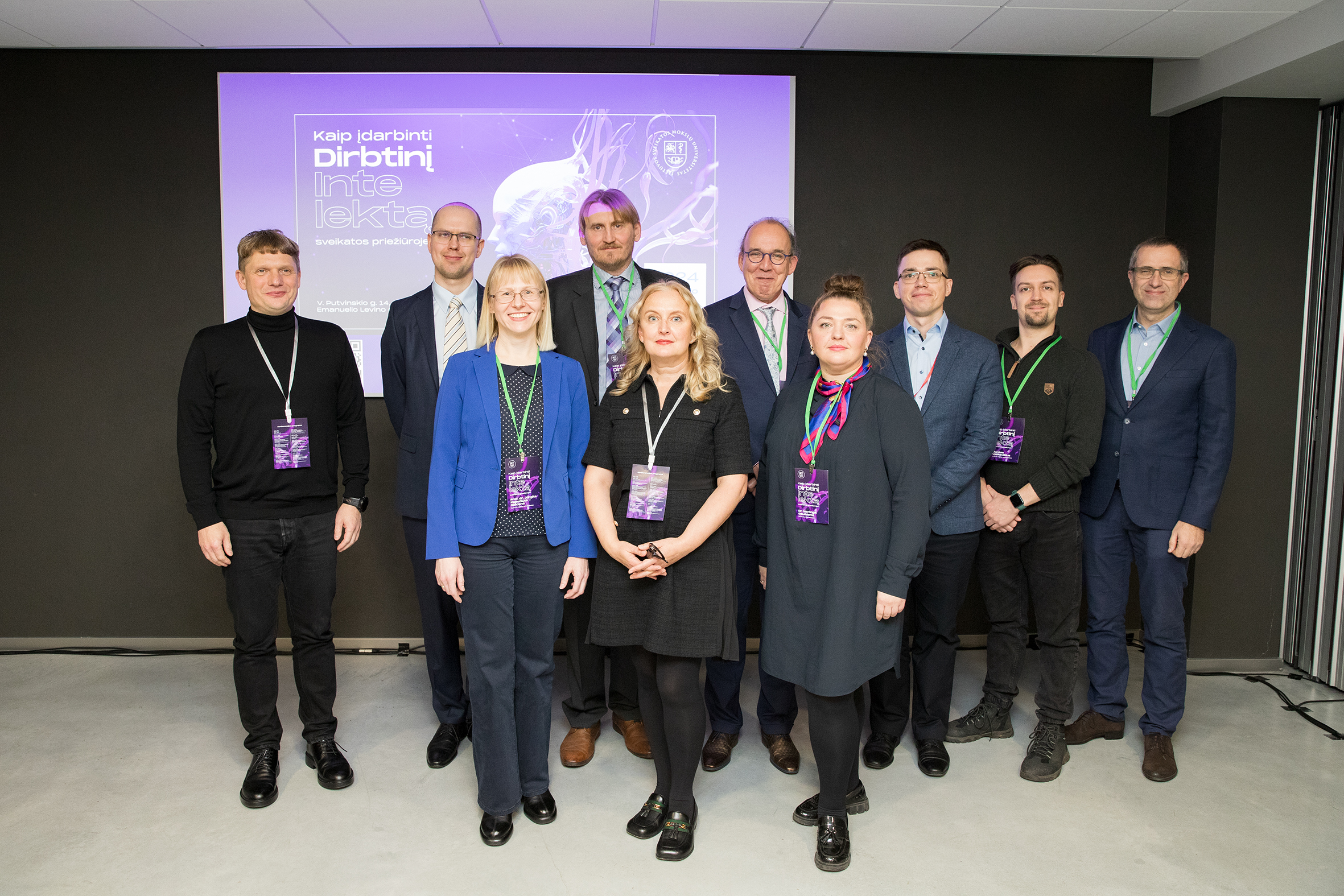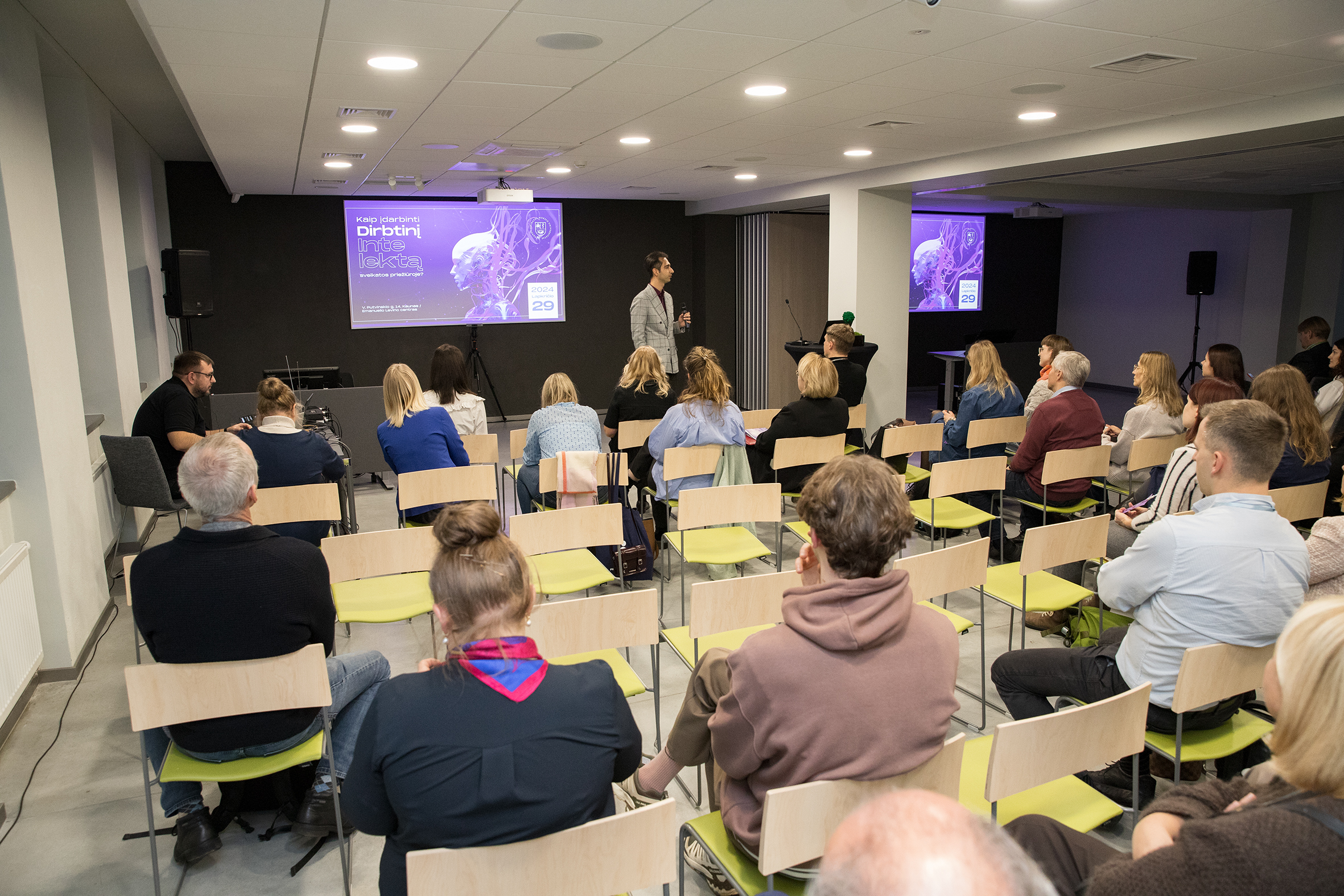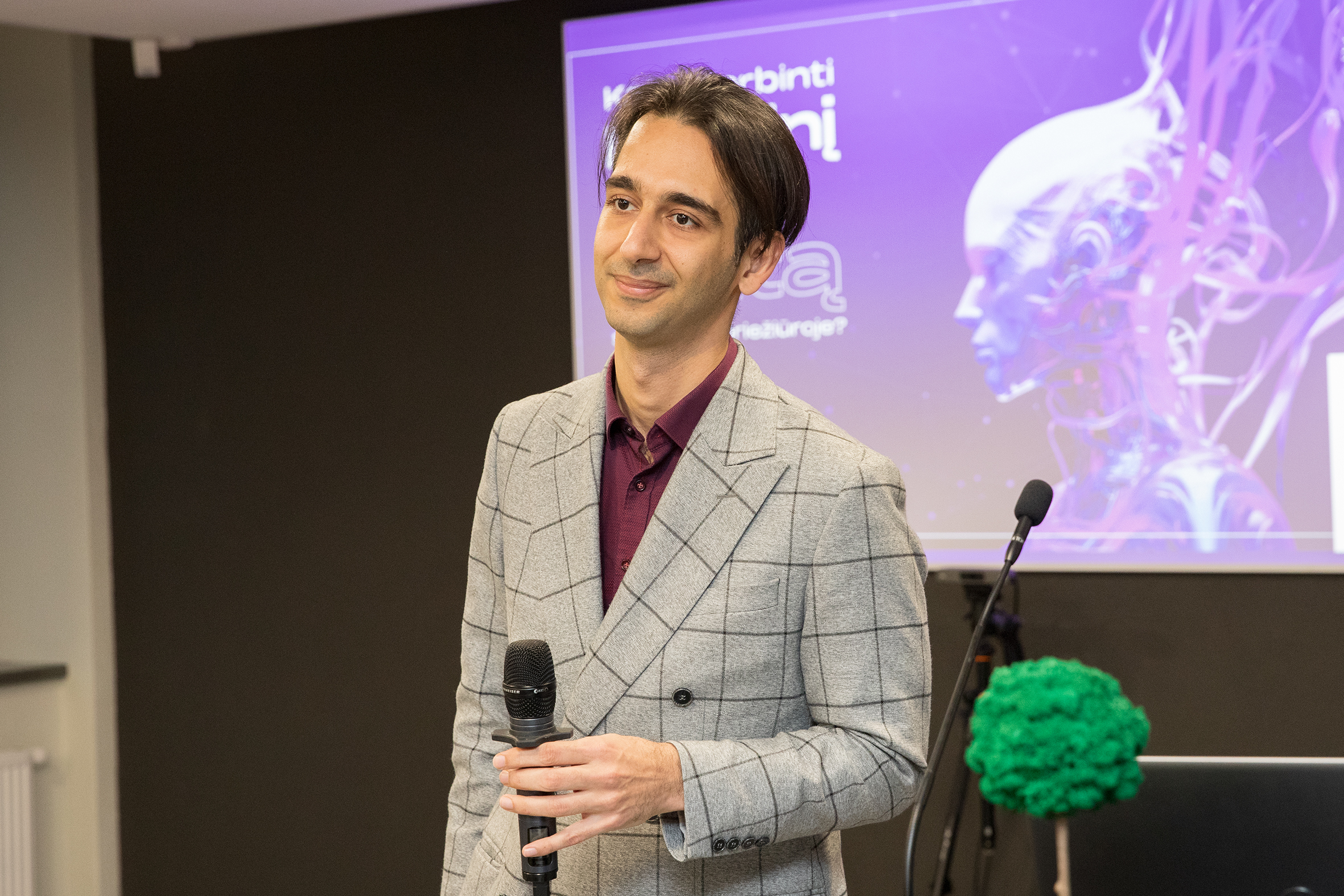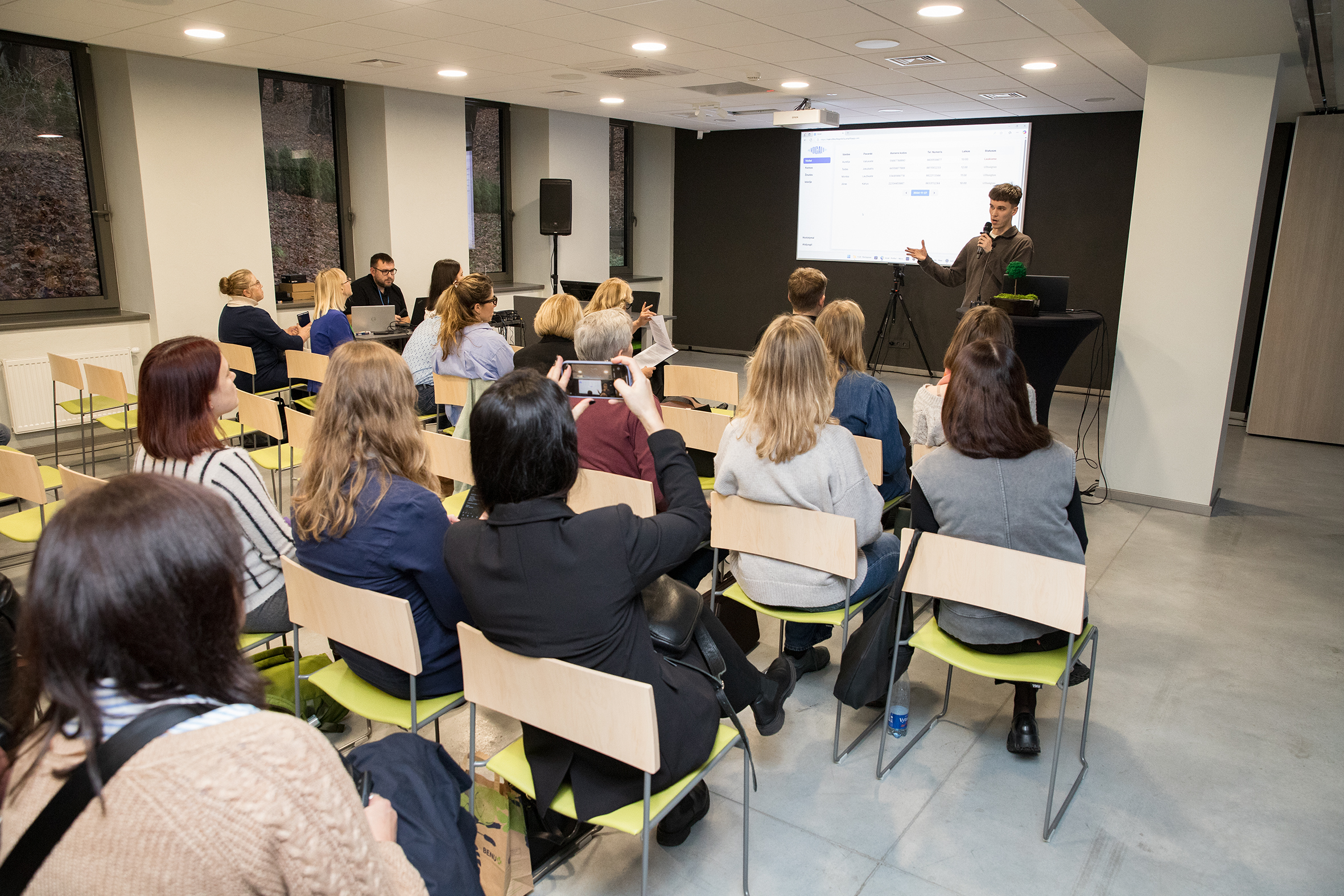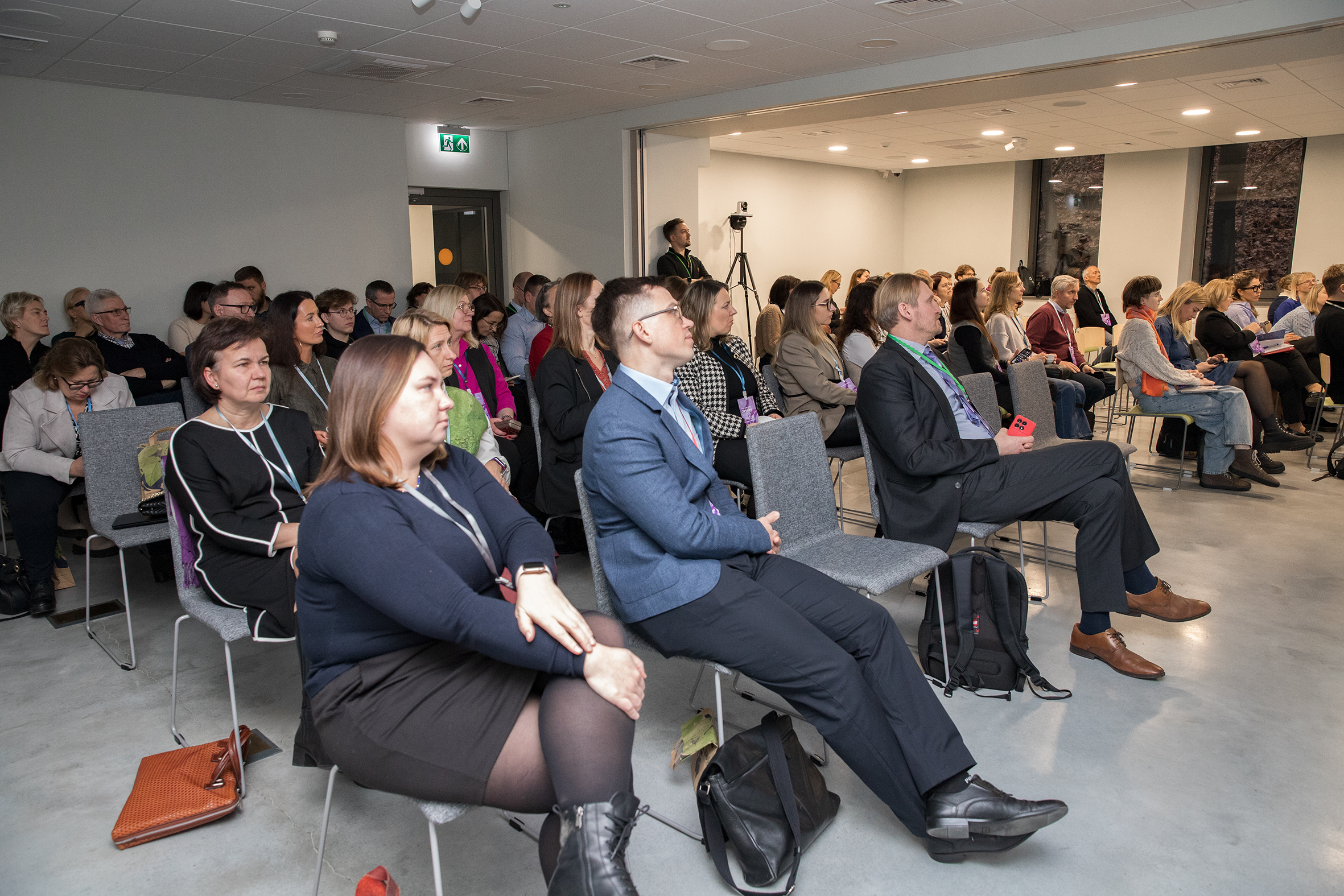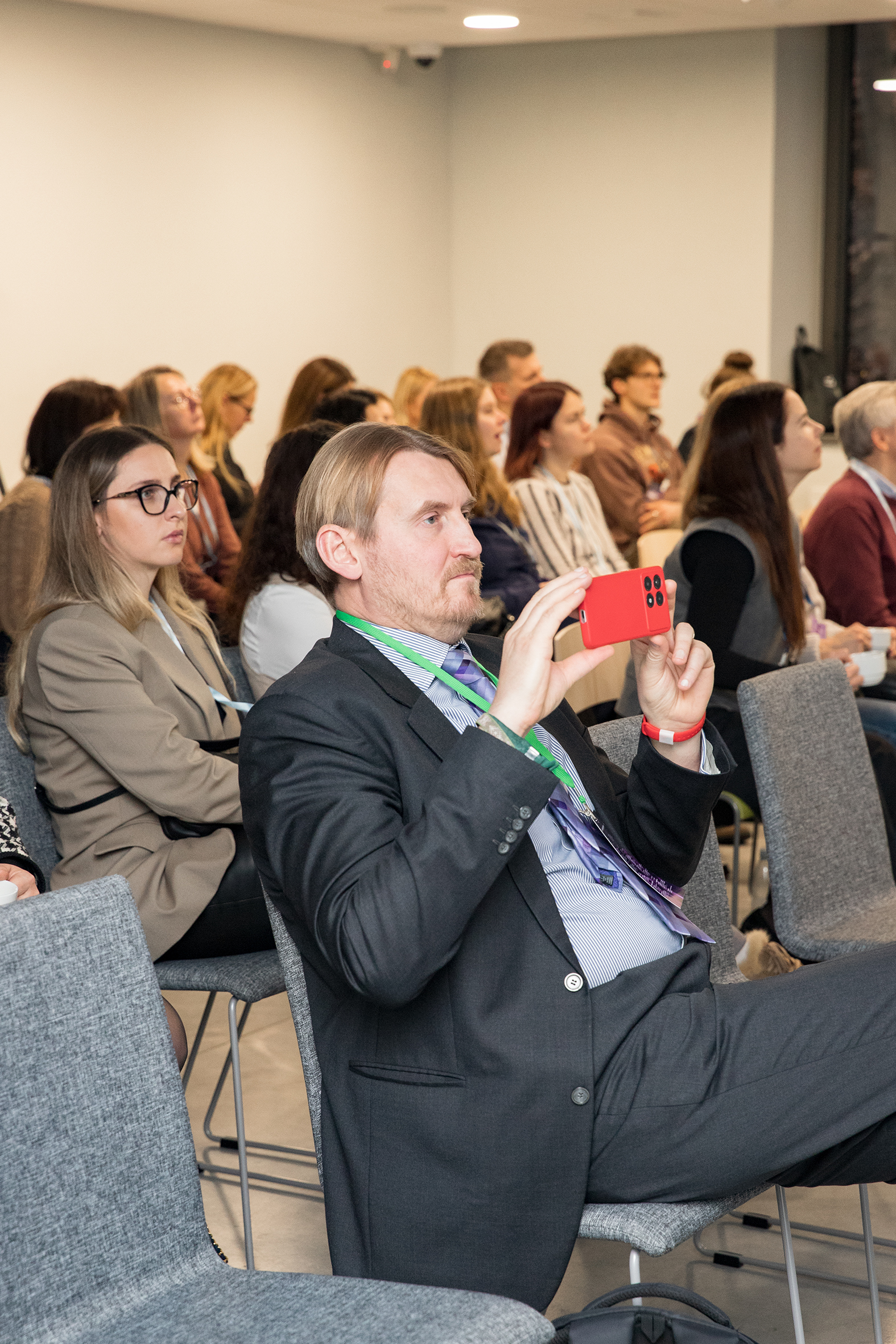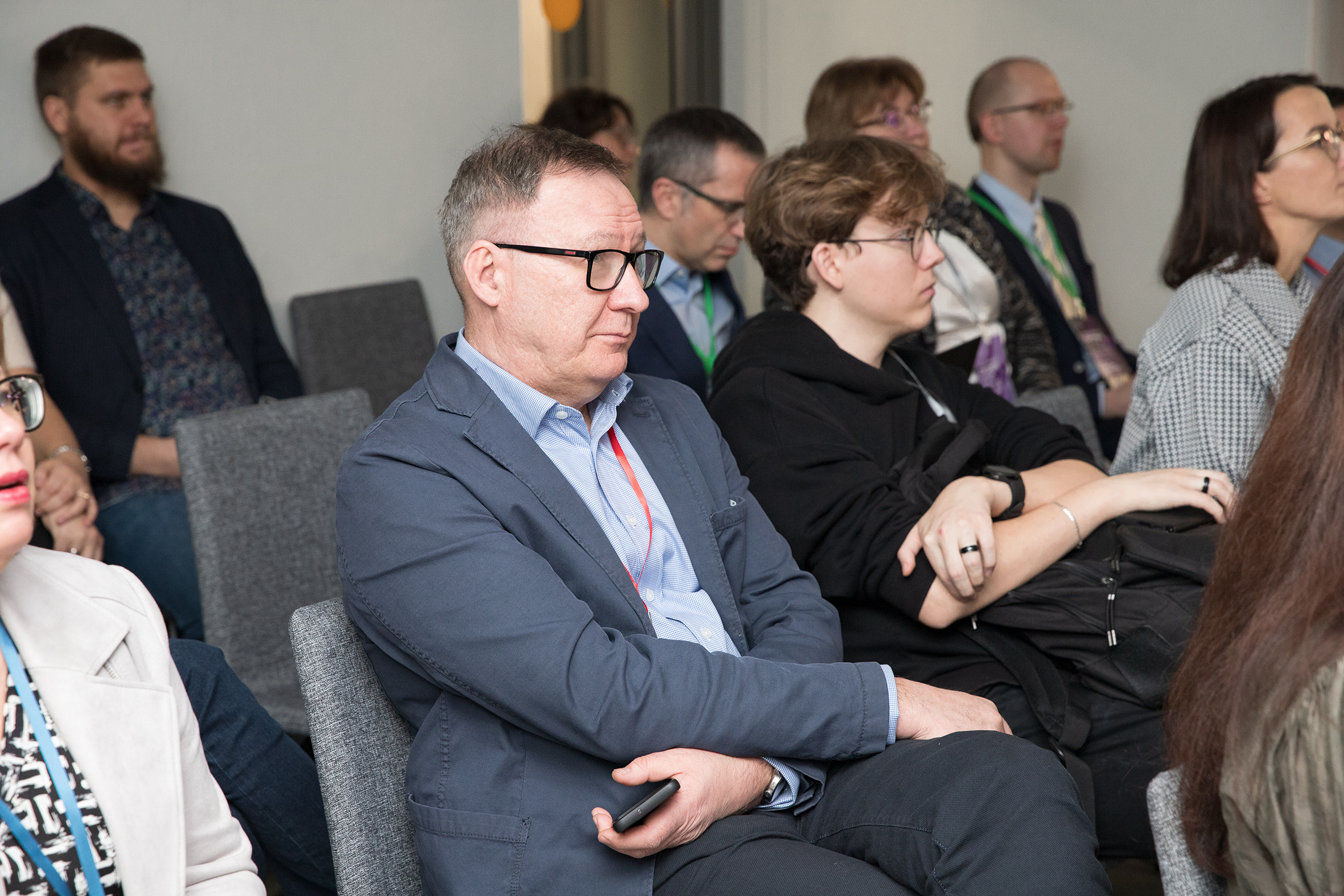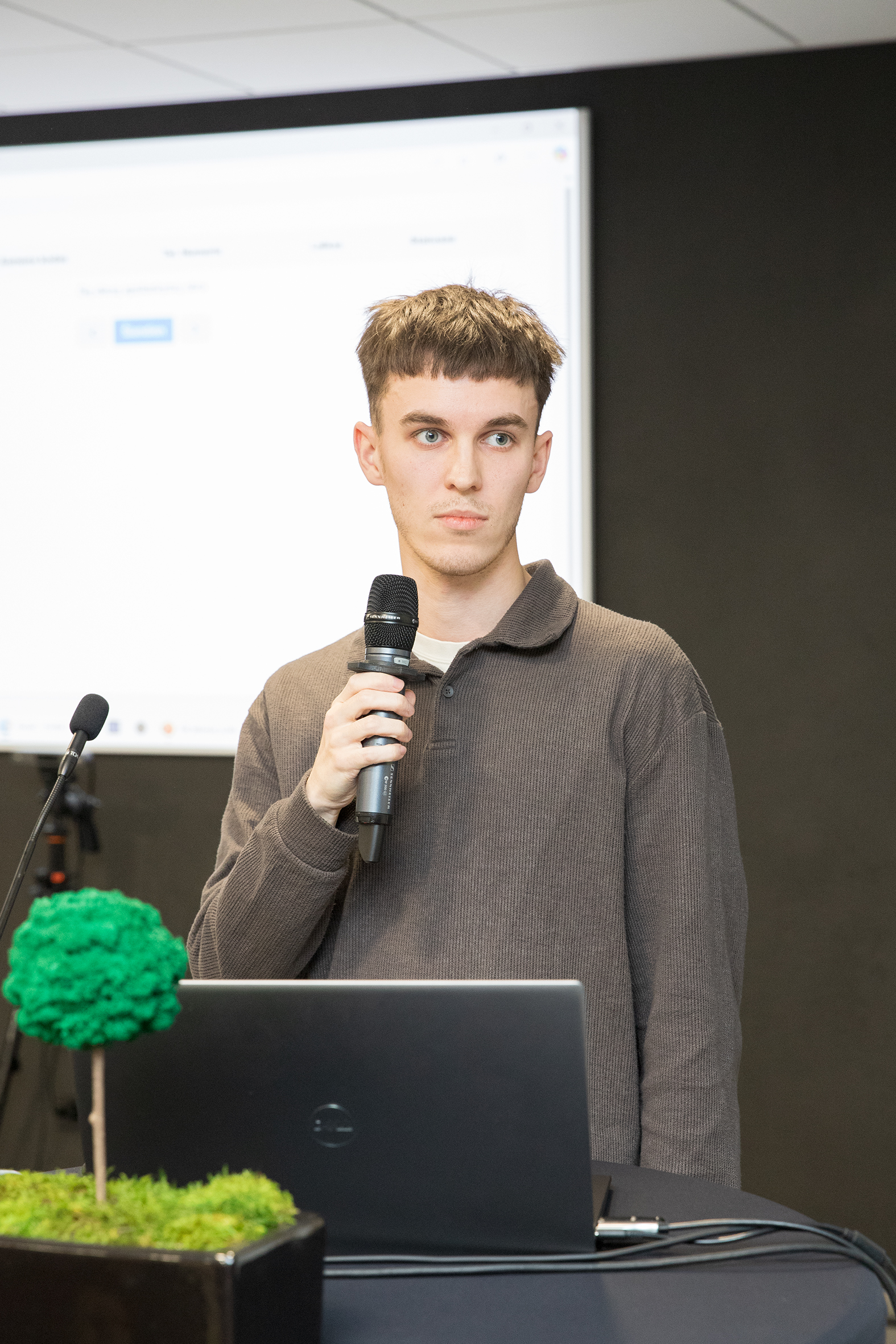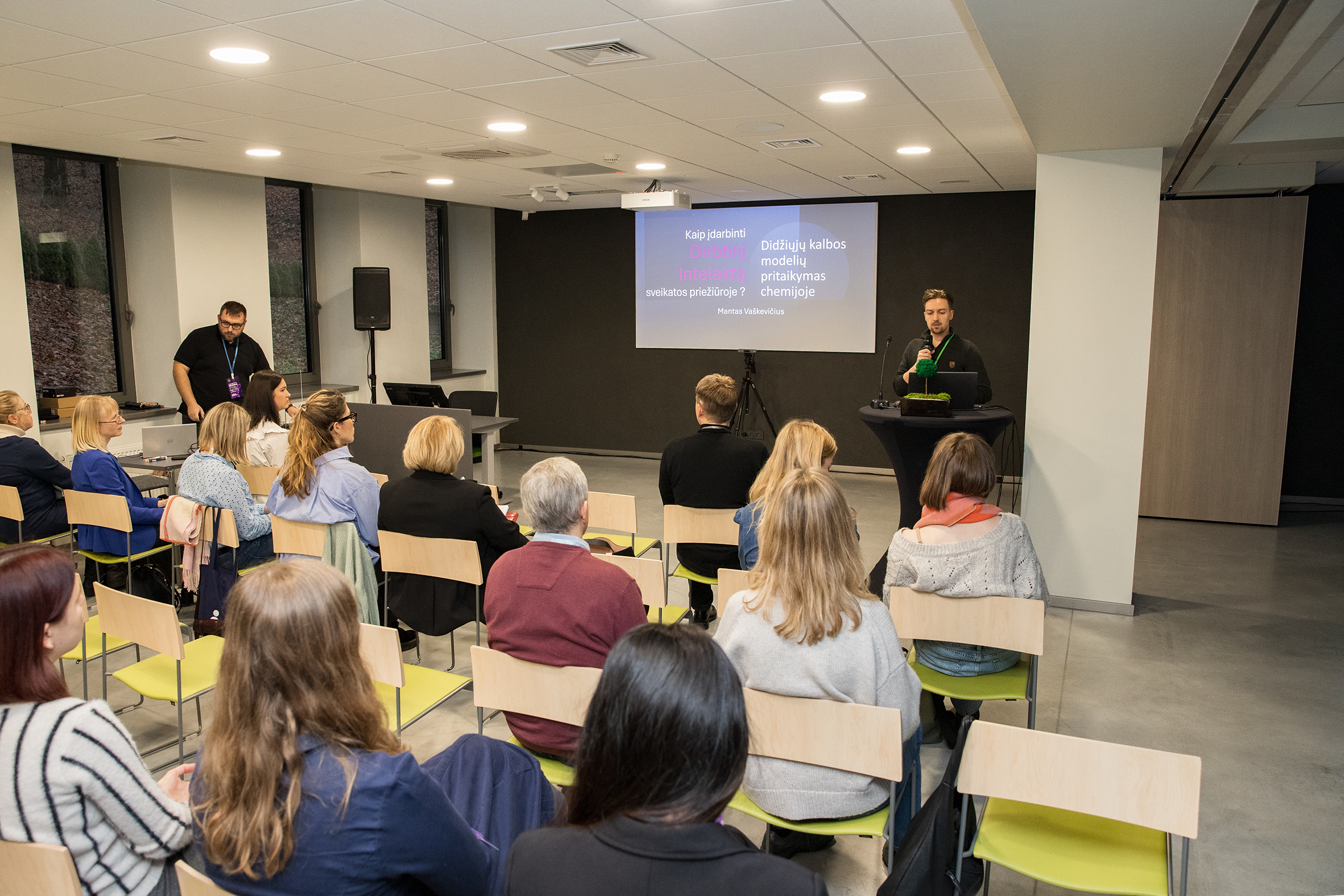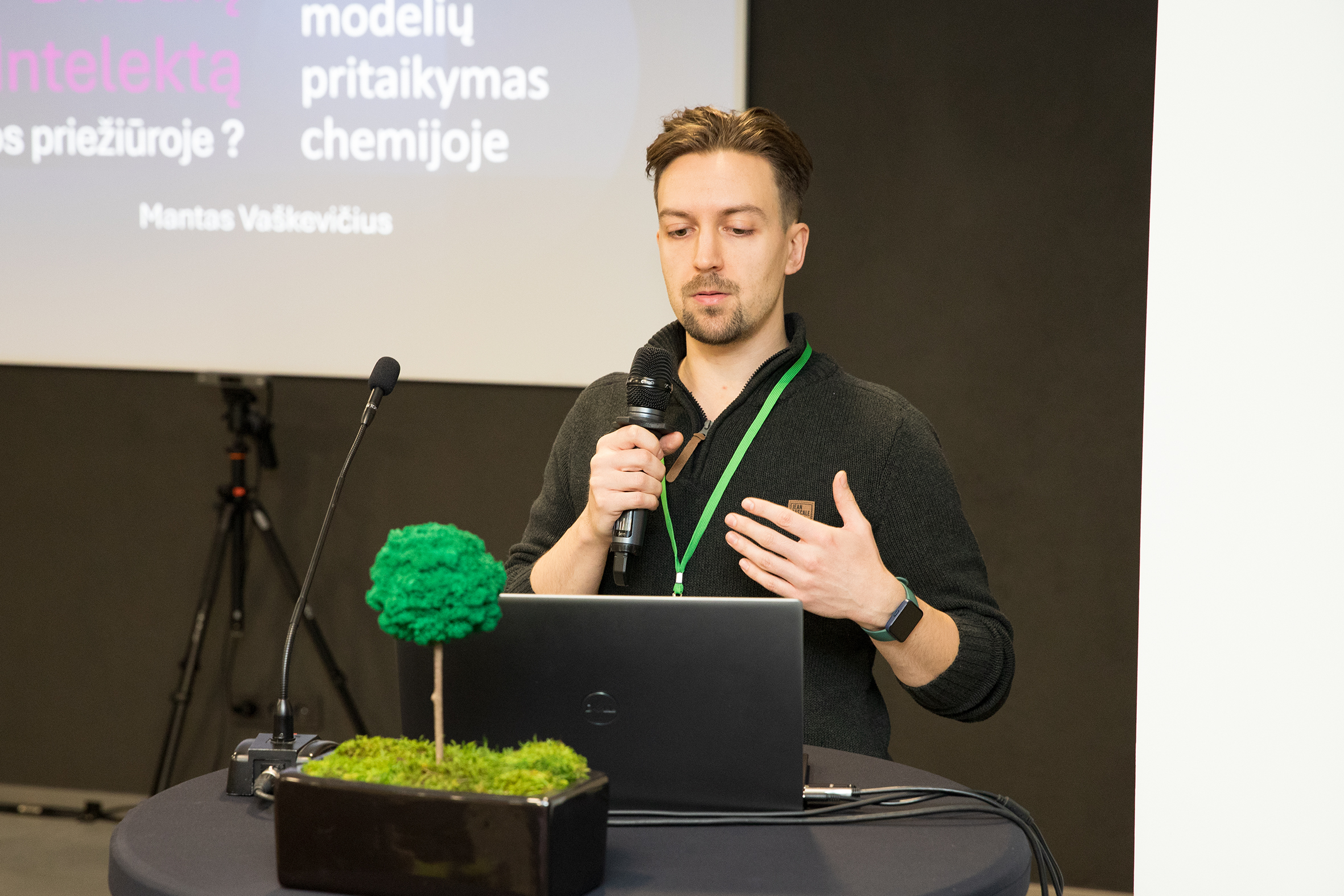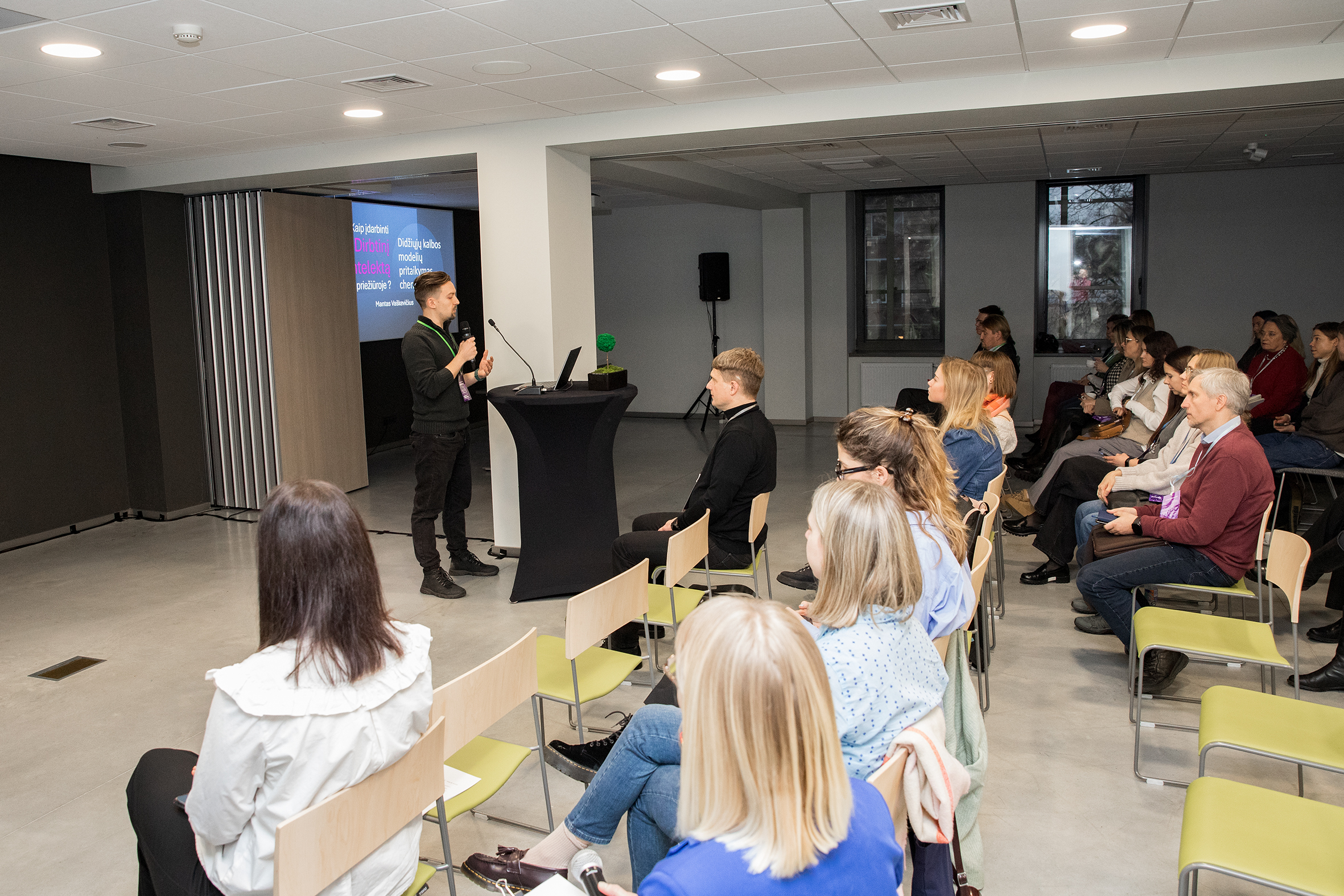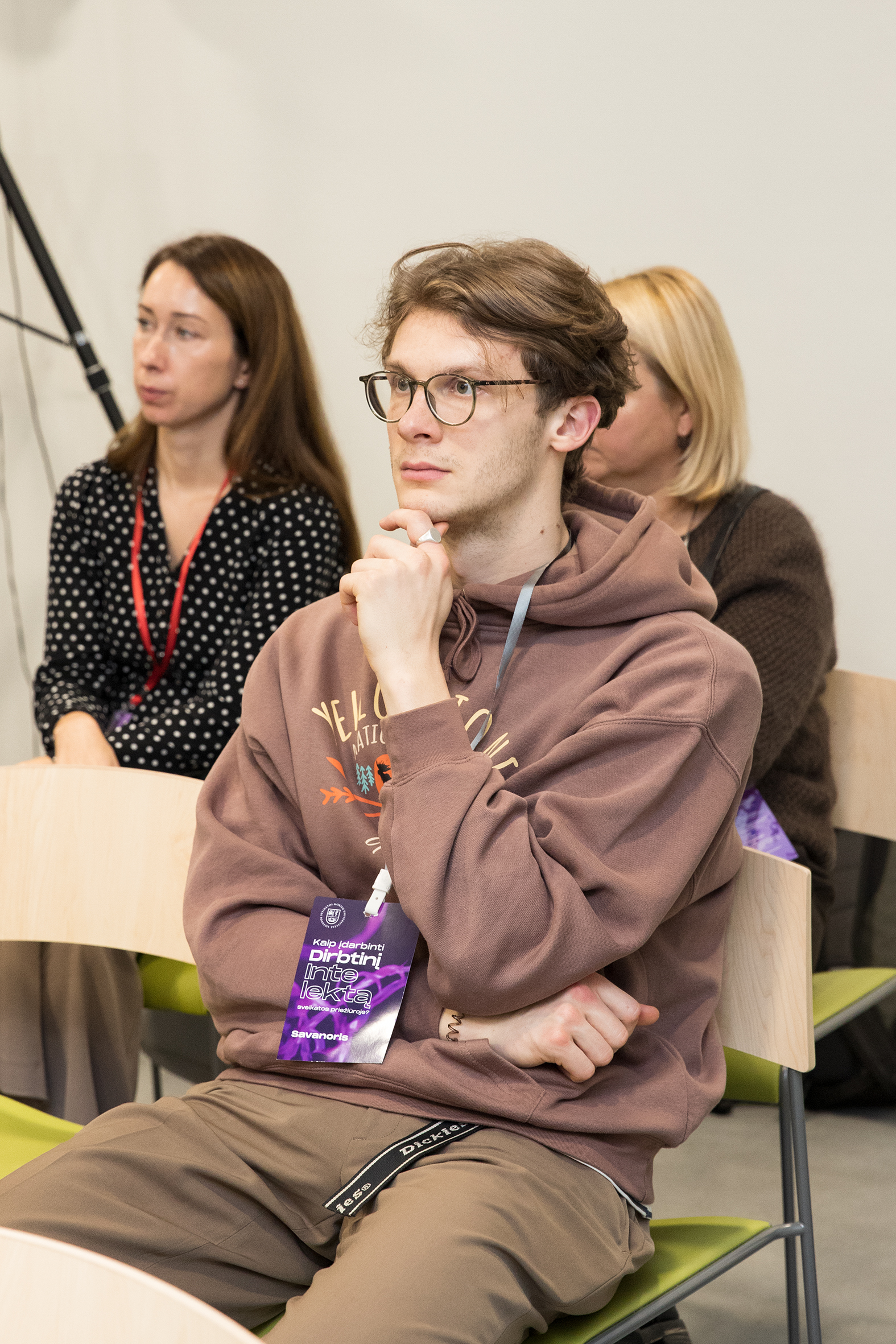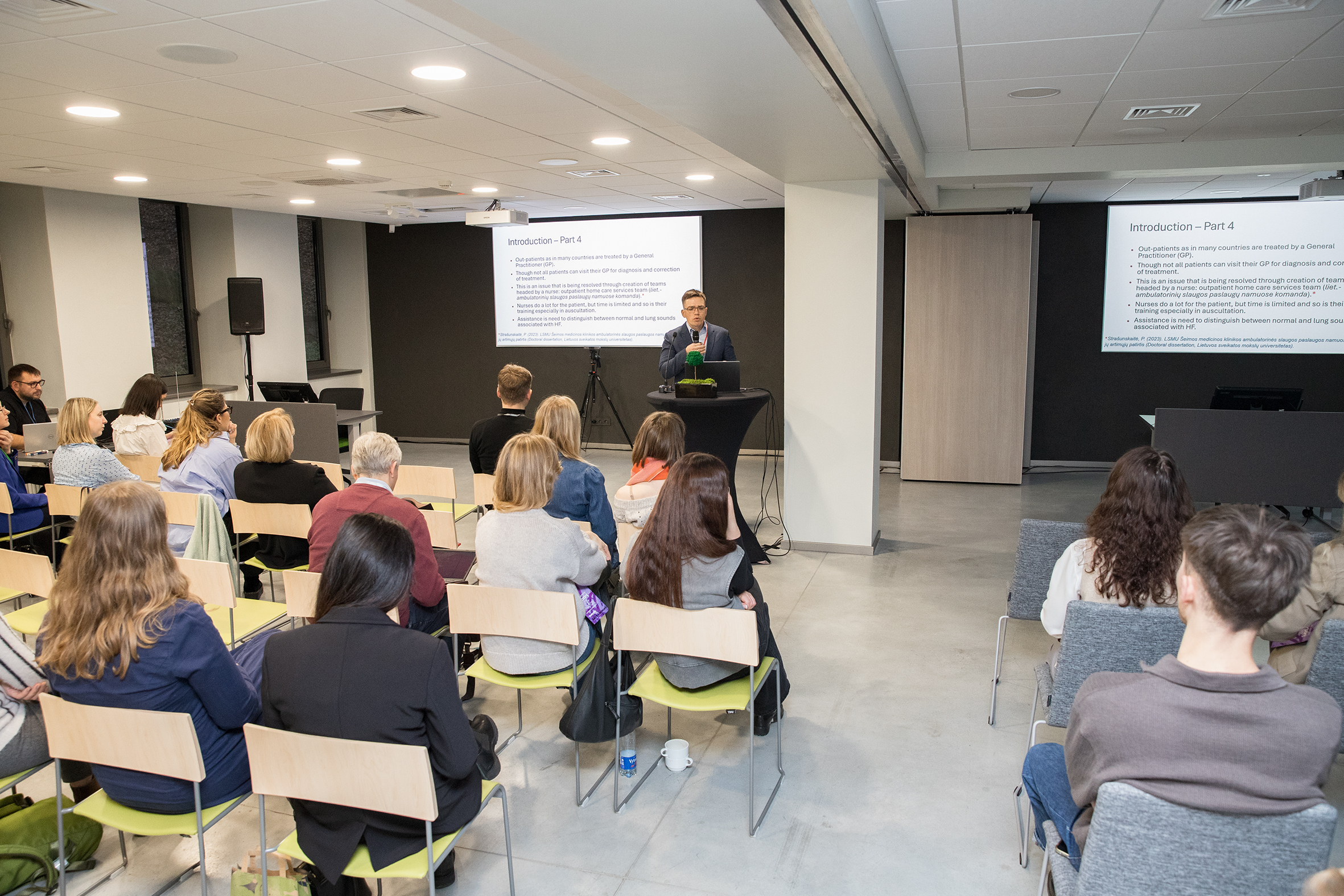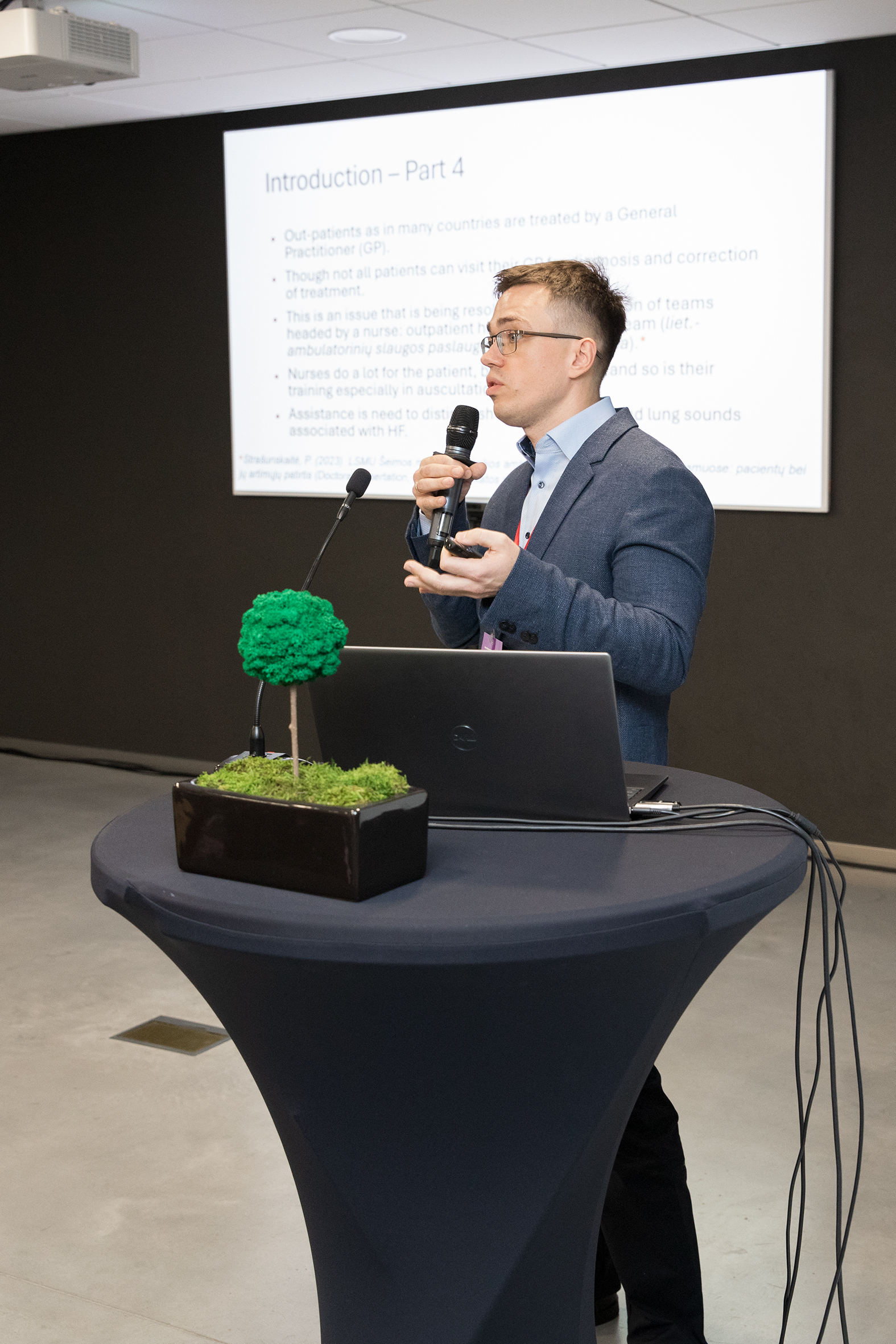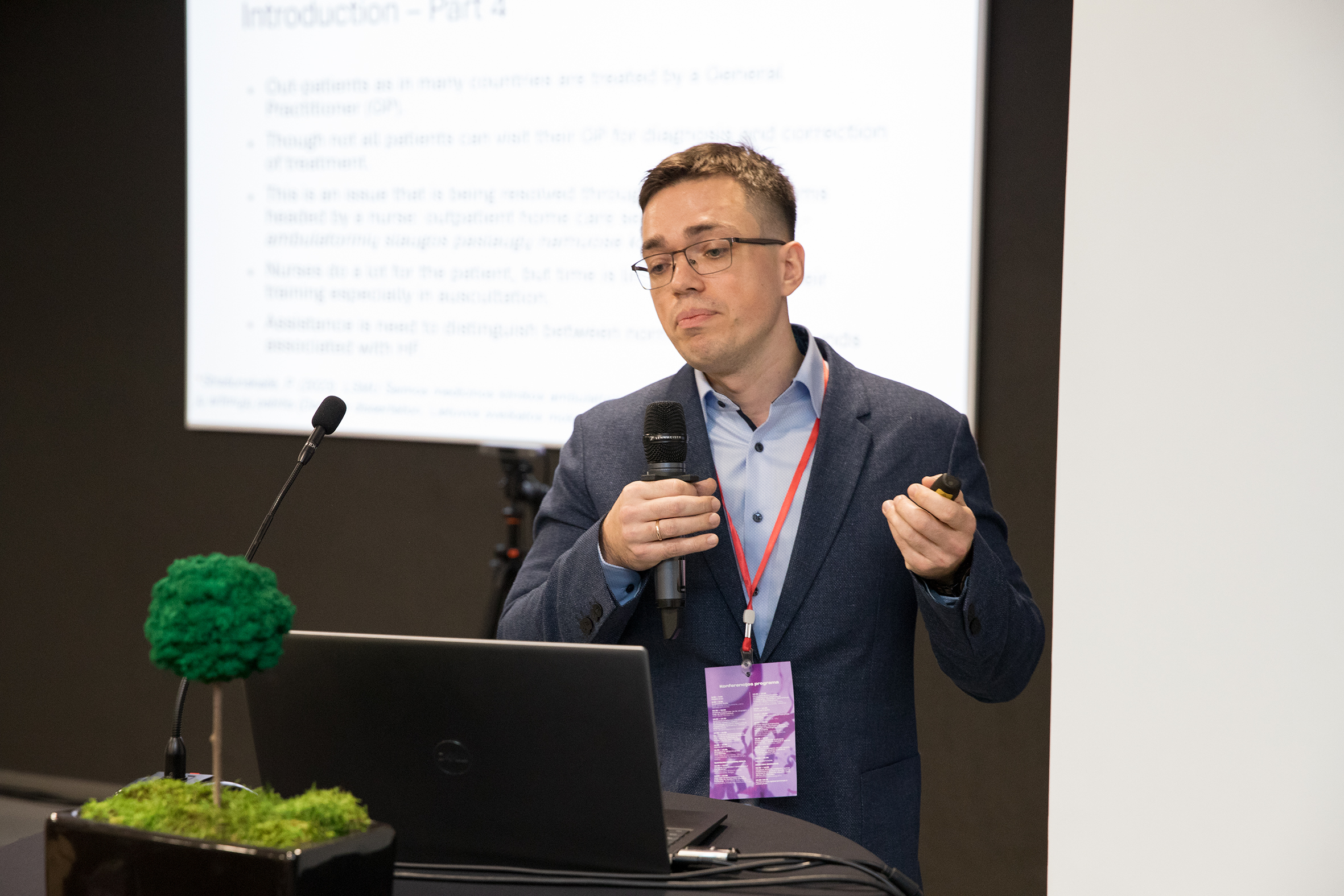Lithuania’s First Conference on AI for Healthcare: Insights from Renowned International and Lithuanian Experts
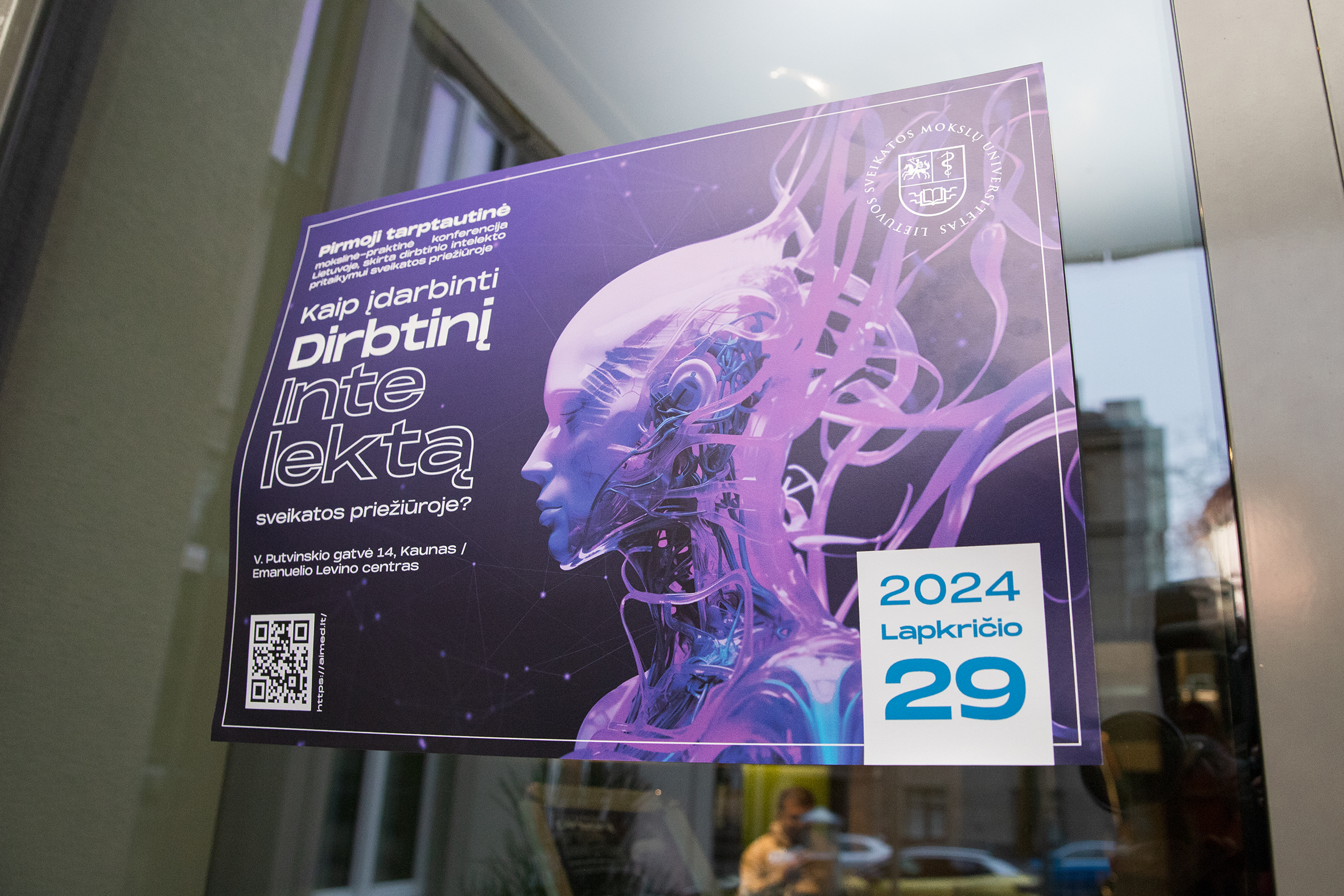
On 29 November, the Emmanuel Levinas Centre at the Lithuanian University of Health Sciences (LSMU) hosted an international scientific conference “Artificial Intelligence in Healthcare”, the first of its kind in Lithuania dedicated to the development and application of innovations in healthcare.
The event was attended by medical doctors, pharmacists, and other healthcare professionals keen to master AI capabilities and enhance their work efficiency, as well as healthcare managers aiming to implement innovations within their organisations.
Conference discussions focused on the role of artificial intelligence in clinical practice, the latest AI solutions in the pharmaceutical sector, and their benefits in daily operations. Participants had the opportunity to enhance their practical skills and learn about how AI tools can aid in the preparation of scientific publications.
Exploring AI Empowerment in Healthcare
According to Professor Jūratė Macijauskienė, Chairperson of the LSMU Senate, it is essential to explore how AI can be empowered to address global challenges in healthcare systems. One of these challenges is the shortage of healthcare workers.
The estimated global shortage of healthcare professionals will amount to approximately 10 million by 2030.
“Patients’ expectations are constantly rising, and organisations are under pressure not only to meet these expectations but also to continuously improve processes. Thus, the question is not whether artificial intelligence can help, but how it can help and what positive or negative consequences it might bring,” stated the Professor.
Like all technologies, artificial intelligence offers both advantages and challenges and risks. One of the risks is related to the product created, particularly concerning patient safety and well-being. Therefore, Professor Macijauskienė emphasised the importance of preparedness to address legal and ethical issues.
Meanwhile, Professor Loreta Kubilienė from the LSMU Faculty of Pharmacy, one of the event organisers, noted that artificial intelligence is already transforming the entire healthcare system.
“AI-driven models are developing new drugs, disease management approaches, and process management systems. We are indeed looking at a very exciting future,” said the Professor, adding that as we prepare for a future where artificial intelligence will play an even more significant role in personal and professional lives, it is crucial to maintain and further develop critical thinking and deepen foundational knowledge.
Attracting Leading AI Experts from Lithuania and Abroad
The conference gathered prominent Lithuanian and international experts who shared their knowledge in the field with the audience. Among them was the globally recognised AI researcher and cognitive psychology specialist, Professor Dr. Max M. Louwerse from Tilburg University in the Netherlands. His presentation aimed to dispel fears surrounding artificial intelligence.
“Humanity has always been worried about artificial intelligence taking over the world. But AI did not emerge yesterday – it has been under development for decades,” remarked the Professor.
He elaborated on how artificial intelligence could be viewed from a psychological perspective.
“Human and artificial minds share many similarities. Even if this were not the case, it would still be useful to examine one in light of the other. For instance, if you want to understand the mechanisms of AI thought processes, it would be useful to analyse it through the lens of human thought processes. Conversely, to study the human mind, it would be useful to consider it from the perspective of artificial intelligence. For historical, terminological, and conceptual reasons, we have already reached this point,” reasoned the professor.
Practical Skill Development
The international event concluded with a practical workshop titled “Latest Artificial Intelligence Tools for Medical Practice and Scientific Research: Start Enhancing Your Work Today” led by Dr. Mantas Lukauskas from Kaunas University of Technology (KTU).
During the workshop, participants gained in-depth knowledge about AI technologies and their direct application in clinical practice. They explored various AI models that support clinicians in their daily life, from diagnosis to optimising treatment decisions. Discussions also covered how these technologies can aid in conducting scientific research and publications, improving data analysis, and enhancing research quality.
Participants not only learned about the theoretical foundations of AI but also acquired practical skills for applying these technologies in everyday activities. They gained the basics necessary to implement these advancements in practice, enabling better outcomes in both clinical work and scientific research.

